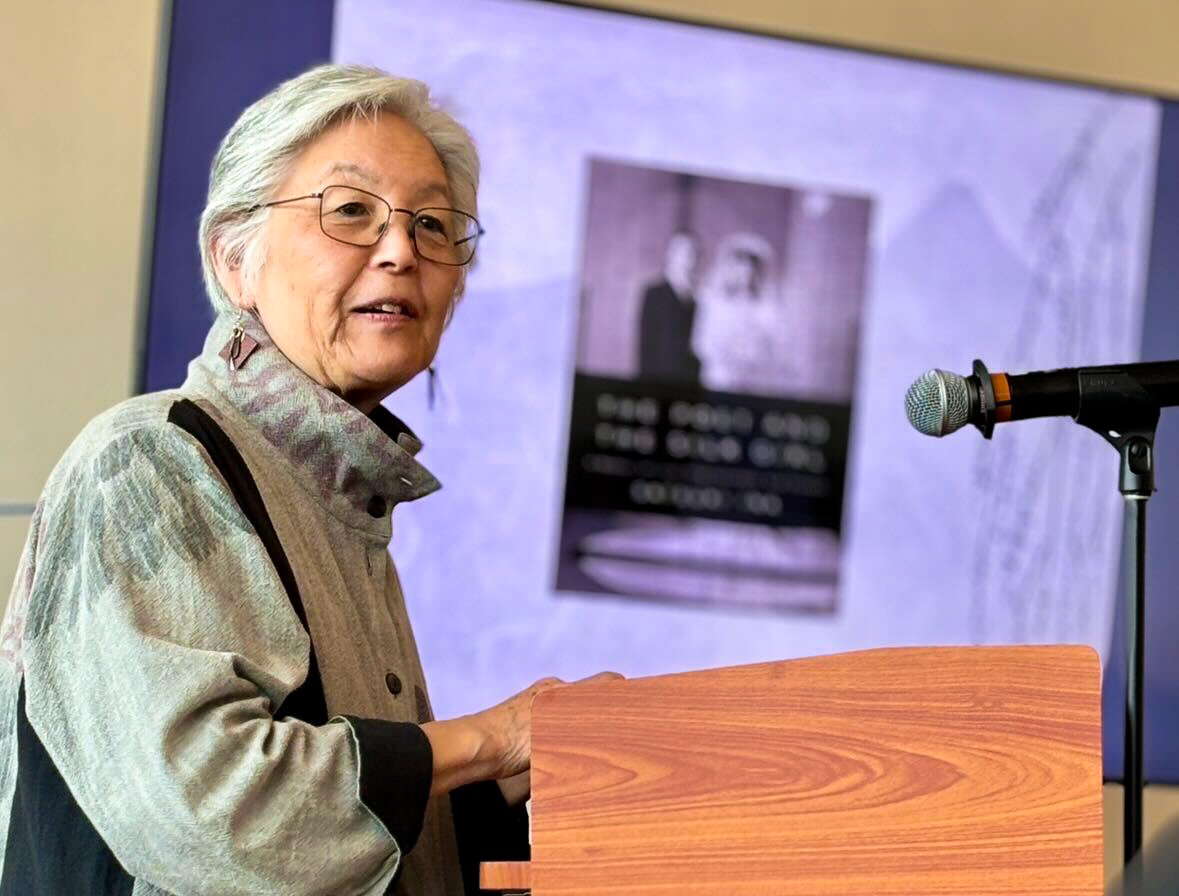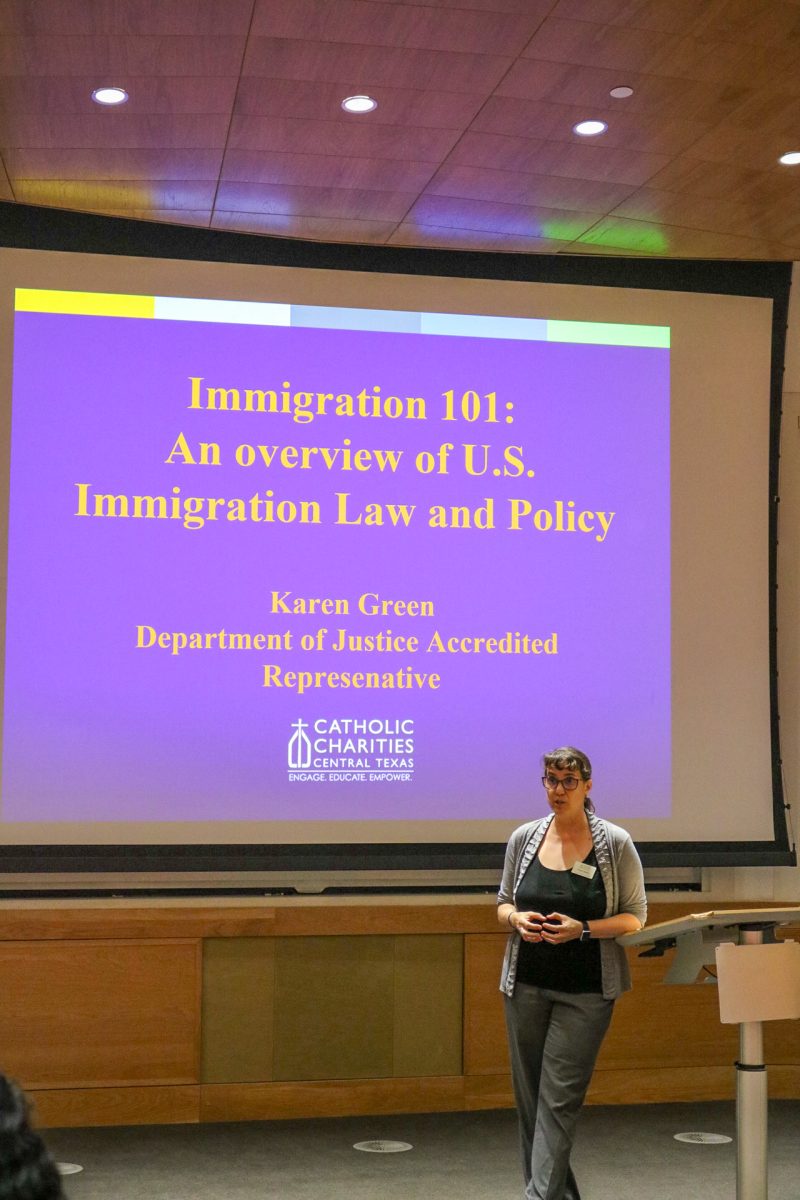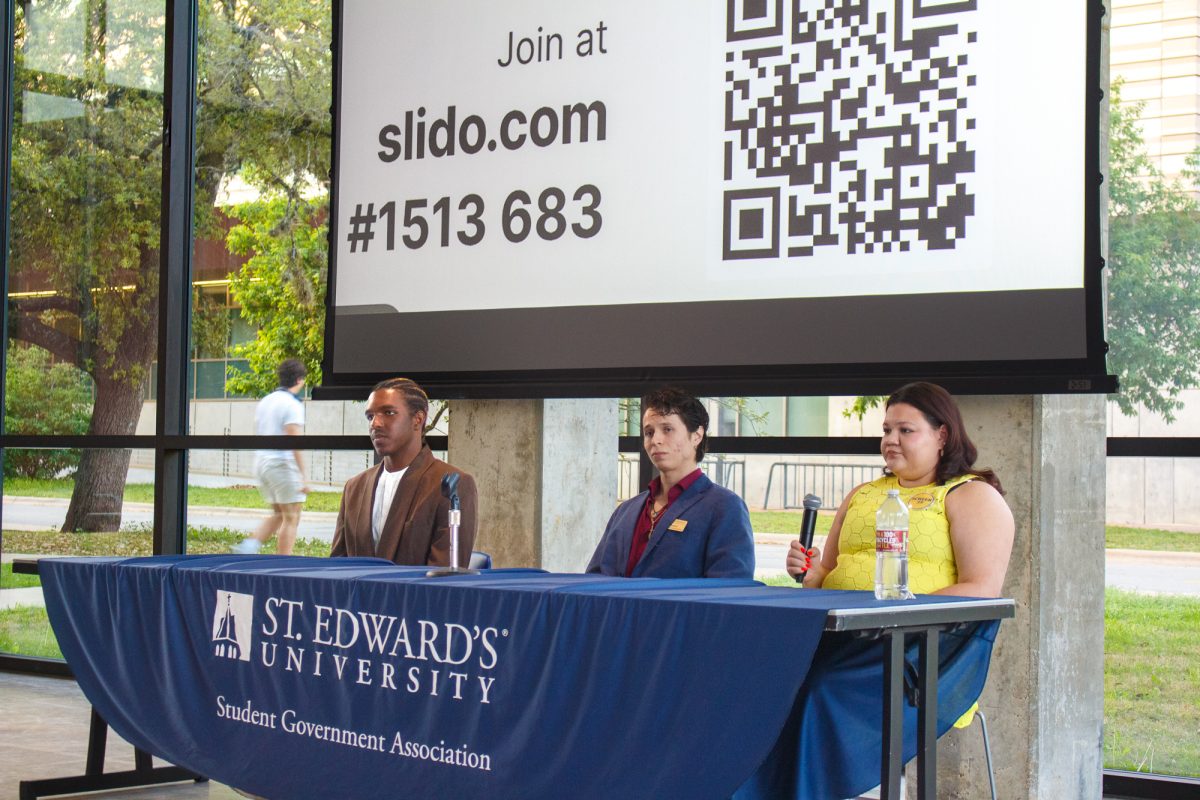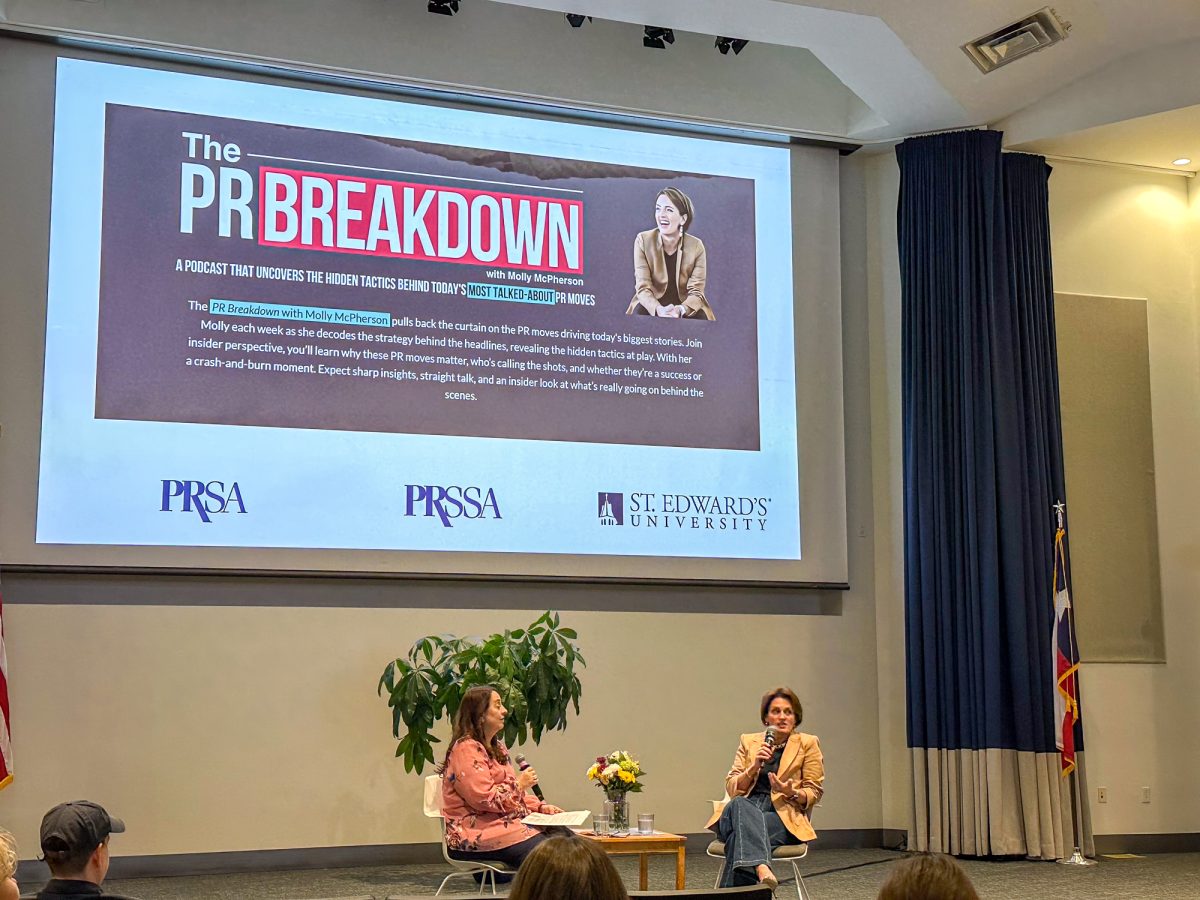The St. Edward’s Social Work Department welcomed Emmy award-winning documentarian, author and psychotherapist Satsuki Ina on Feb. 12 to discuss and make connections with her memoir “The Poet and the Silk Girl: A Memoir of Love, Imprisonment and Protest,” which tells the story of her family’s story of oppression and resilience during World War II.
While Ina told her family’s story, she encouraged audience members to actively participate and snap their fingers every time an event she spoke about mirrored the actions and attacks currently taking place towards the migrants and their families under the Trump Administration.
“Ina’s story is an extremely powerful, although painful, example of how history is repeating itself right now with mass incarceration and mass deportation, so I think it helps us connect history to the present,” social work program director Laurie Cook Heffron, Ph.D., said.
Heffron introduced Ina and she began her presentation by introducing her parents’ background to the crowd and explaining how they both had birthright citizenship, with her grandparents being immigrants from Japan. Ina, in a presentation slide, showed photographs of each of her parents, along with displaying important citizenship documents, such as their birth certificates — an important factor to her message.
After the introduction, Ina began to chronologically explain the historical context of discrimination towards Japanese-Americans and those of Japanese descent after the attack on Pearl Harbor through the eyes of her family’s own experience. She explained that discriminatory actions from the public and the federal government towards the Japanese community, both “alien” and “non-alien” alike, escalated over time.
“There was a movement to get rid of the Japanese who were born there and the immigrant community as well,” Ina said. “There were large organizations that wanted to get rid of the Japanese farmers, the farm workers and people in the community began to be viewed as a threat to national security.”
Ina then explained how the threats became reality as they began to round up and begin a mass incarceration of all persons and families of Japanese ancestry. She went into more detail about what took place during the internment, including being moved from place to place and men being taken to separate detention centers. Military officials in the camps also began to coerce and pressure those in the camps to renounce their American citizenship or they were forced to continue to endure life in the camps or face possible deportation. Ina explains that her parents made that difficult decision but acted in the best interest for their family.
“What they did is they coerced and pressured people to sign a renunciation paper, but they’re forced to give up their American citizenship,” Ina said. “And my parents felt like they had to follow that path because indefinite detention with two small children was an unbearable thought.”
Ina’s family’s story, though having taken place 80 years ago, still stands with strong relevance today, with government actions being mimicked, such as the mass detainings and deportations happening across the country and challenges to birthright citizenship. Ina explained that though these connections can cause fear, she ended her talk with a beacon of hope, thanking the organizer’s efforts and encouraging the audience members that their attendance and willingness to educate themselves are essential to putting an end to discriminatory policies.
“I’m happy because I know that the folks that brought everyone here have invested a great part of their lives and their purpose to try and stop this process, which we will do,” Ina said. “And each of us, in our own way, will find the organizer in you.”










Fran • Feb 18, 2025 at 6:56 am
While Ina’s story is undoubtedly powerful and provides a historical perspective, her direct comparison between Japanese-American internment during World War II and current (popular) immigration policies under the Trump administration oversimplifies complex legal and political contexts. The internment of U.S. citizens based on race, without due process, was a clear constitutional violation, whereas modern immigration enforcement primarily involves non-citizens facing deportation under current legal frameworks. While there are concerns about detention and deporting conditions and policy decisions, equating historical internment with contemporary immigration enforcement risks conflating two distinct issues and detracts from a more nuanced discussion on immigration policy.